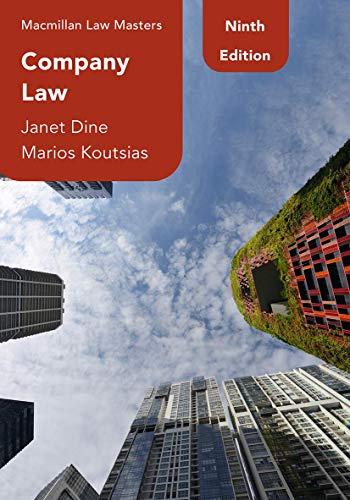Question
Answer the following True or False 1. Except officers of the Cooperative Development Authority, no government agency, as a rule is allowed to interfere into
Answer the following True or False
1. Except officers of the Cooperative Development Authority, no government agency, as a rule is allowed to interfere into the internal affairs of a cooperative.
2. Cooperatives are encouraged to resolve legal and administrative issues with its members or other cooperatives and entities through non-adversarial methods.
3. Amicable settlements of intra-cooperative and inter-cooperative disputes may be facilitated by mediation and conciliation committee of a cooperative.
4. As a rule, cooperatives are allowed to establish their branch offices and cooperative satellite offices.
5. The establishment of cooperatives is of itself a shared endeavor between the public sector and the private sector.
6. Cooperatives are expected to undertake feasibility studies before they engage into business ventures.
7. Much like private corporations, cooperatives are required to adopt their own set of bylaws.
8. The certificate of cooperation is akin to the certificate of incorporation of a private cooperation.
9. As a rule, cooperatives are prohibited from generating profits from doing business.
10. Cooperatives are expected to conduct their affairs in accordance with Filipino culture, good values and experience and the universally accepted principles of cooperation.
11. Cooperatives cannot enjoy support in all forms from the government as it would run contrary to the principle of equality among business entities.
12. The Department of Trade and Industry functions like the Cooperative Development Authority for private corporations.
13. Under the principle of subsidiarity, cooperatives are treated as entities that should be supported by all government instrumentalities.
14. Cooperatives are supposed to provide goods and services only to its members.
15. Cooperatives aim to insure against losses of the members.
16. Cooperatives are primarily established to promote the quality of life of its members.
17. Cooperatives when managed properly are treated as self-sustaining economic entities intended for the promotion of social justice.
18. As a rule, members of cooperatives like the stockholders in a private corporations are allowed to vote via cumulative voting.
19. Cooperatives can sue but may not be used.
20. Cooperatives are legally allowed to enter into merger and consolidation but not division.
Step by Step Solution
There are 3 Steps involved in it
Step: 1

Get Instant Access to Expert-Tailored Solutions
See step-by-step solutions with expert insights and AI powered tools for academic success
Step: 2

Step: 3

Ace Your Homework with AI
Get the answers you need in no time with our AI-driven, step-by-step assistance
Get Started


